A Glimpse into Military Imprisonment
Iraqi Kurdistan is an autonomous region in Iraq comprising of four Kurdish-majority governments: Dohuk, Erbil, Halabja, and Sulaymaniyah. Altogether, the region borders Iran, Syria, and Turkey. Since the dissolution of the Ottoman Empire following World War I, the region’s ethnic Kurds have ceaselessly yet unsuccessfully aimed to establish the independent state of Kurdistan.Saddam Hussein, while in control of the Iraqi government, used his policing powers to pursue the regime’s enemies, through which he brutally consolidated his rule with an iron fist for almost 30 years.Throughout the region’s ceaseless civil wars, the Kurds repeatedly battled foreign oppression to get regain their rights taken by other countries. At the same time, thousands of Kurdish activists and politicians within Kurdistan have been removed from office, jailed, and tortured. These portraits relate to some of those freedom-fighters.
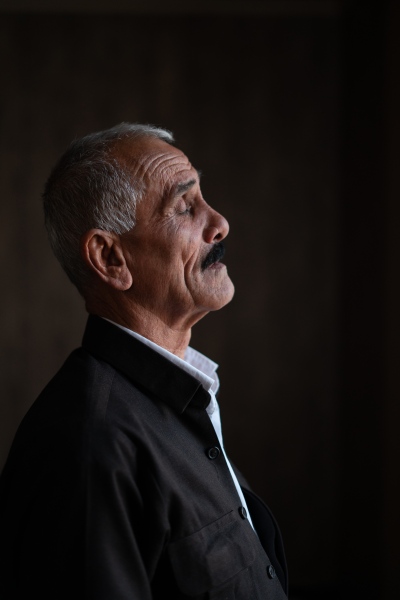
Muhammad was born in 1954 in Merdera. Having formed had a connection with the Kurdish revolutionaries known as the "Peshmerga," he engaged in acts of espionage against Saddam Hussein's regime within Iraq. On the other side of the border, he would regularly visit his fellow revolutionaries who were at that time consistently in active combat and thus had to live in the region's mountains.
One fateful day the Iraqi armed forces broke into his house, and he had no chance for escape. He was arrested and imprisoned in Kirkuk, as were his brothers,.
From there he was first sent to Baghdad, and then to Abu Ghraib prison, where he and his brothers endured for more than a year. They eventually were all released; no prosecuting witnesses came forward in charging them as Peshmerga spies.
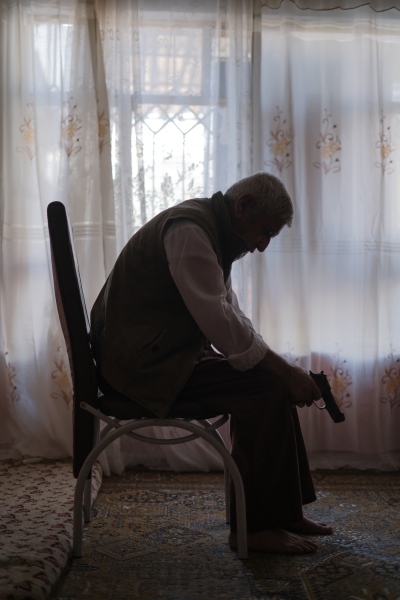
Muhammad was born in Ranya. He joined the Iraqi military, and underwent training for a week at a camp in Tadrib. He and his friends were sent directly to the Jafar area, a border area between Iraq and Iran. Prior to the war, he was told that he would deployed to the Iraqi city Basra. However, on 5/24/1982, he was instead taken to the frontlines. In combat, the Iranian forces at the time took the upper hand;14 thousand Iraqi soldiers were taken as prisoners of war. Muhammad was jailed for 9 years and still suffers from his prolonged experience, as he was diagnosed with cancer caused by longterm exposure to moisture while he was imprisoned.
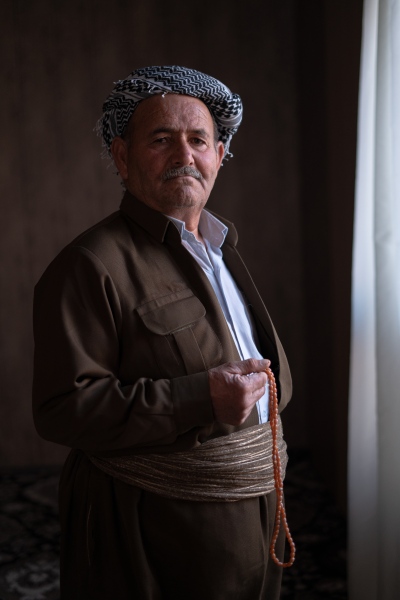
Fattah, born in 1954 in the town of Tlem, now lives in Sarkapkan. He was spy against Iraqi operations regime in Ranya.
Once, while on mission, he was followed and arrested by his opposition's armed forces. He was then taken to Qaladze city and subsequently transferred to Kirkuk's prison. The Court of Iraq sentenced him to death, and then transferred him once more, this time to Abu Ghraib. He was held there for four months, and was notified that he would be promptly executed if his father, a political leader at the time, didn't give up his revolutionary efforts. Following the ultimatum, his father conceded, and therefore Saddam Hussein, gave amnesty to Kurdish political prisoners, and thus Muhammad was also released from jail.
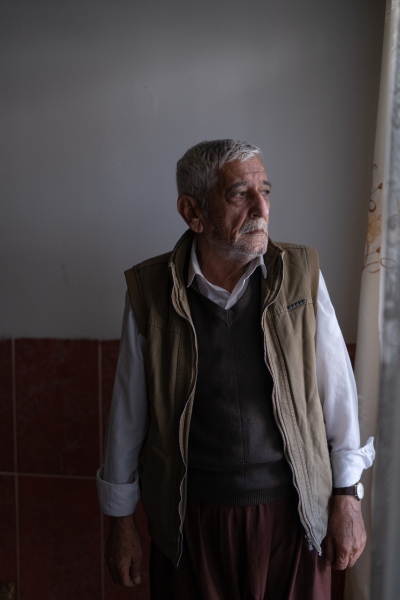
Muhammad was born in Ranya. He joined the Iraqi military, and then underwent training for a week at a camp in Tadrib. He and his friends were sent directly to the Jafar area, a border area between Iraq and Iran. Prior to the war, he was told that he would deployed to the Iraqi city Basra. However, on 5/24/1982, he was instead taken to the frontlines. In combat, the Iranian forces at the time took the upper hand; fourteen thousand Iraqi soldiers became prisoners of war, and Muhammad was just one. He was imprisoned for 9 years and still suffers from his prolonged experience, as he was diagnosed with cancer caused by longterm exposure to moisture while he was imprisoned.
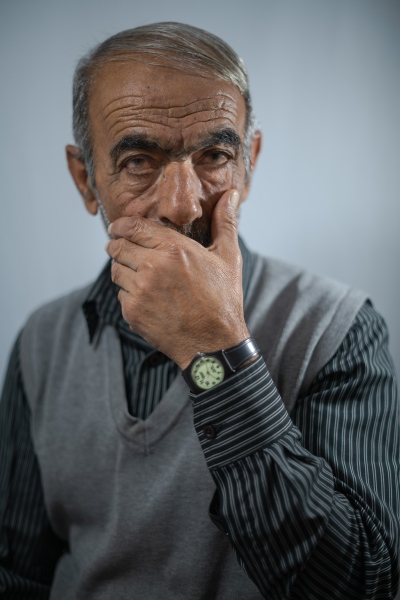
Khidir was born in Ranya city of Iraq where he was head chef in his own restaurant from 1974 to 1982.
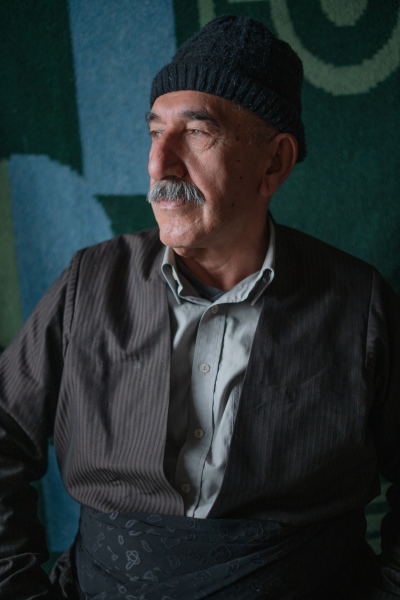
Omar was born in the city of Ranya in 1953, and became a member of the Kurdistan Democratic Party in 1968. Through the party, he became an active member of the Peshmarga (Kurdish liberation) front in the Second Iraqi-Kurdish War (1974-1975). Following the conflict, in 1976, he was arrested by the Iraqi government on account of his Peshmerga affiliations and was subsequently imprisoned in Kirkuk for more than a year.
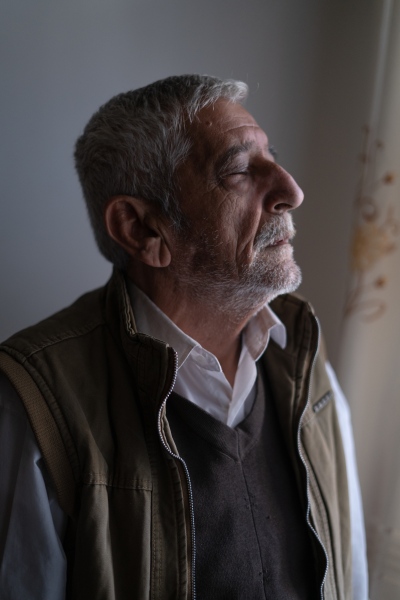
Muhammad was born in Ranya. He joined the Iraqi military, and underwent training for a week at a camp in Tadrib. He and his friends were sent directly to the Jafar area, a border area between Iraq and Iran. Prior to the war, he was told that he would deployed to the Iraqi city Basra. However, on 5/24/1982, he was instead taken to the frontlines. In combat, the Iranian forces at the time took the upper hand;14 thousand Iraqi soldiers were taken as prisoners of war. Muhammad was jailed for 9 years and still suffers from his prolonged experience, as he was diagnosed with cancer caused by longterm exposure to moisture while he was imprisoned.
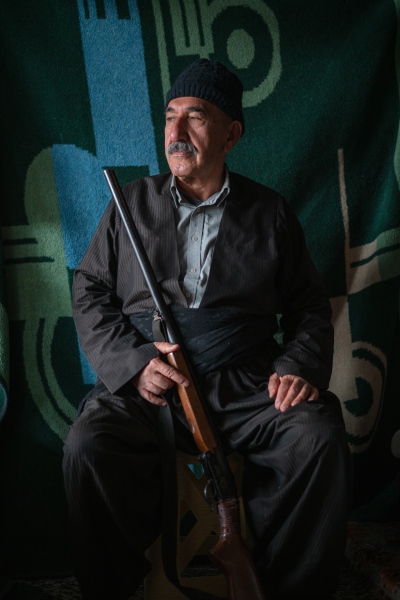
Omar was born in the city of Ranya in 1953, and became a member of the Kurdistan Democratic Party in 1968. Through the party, he became an active member of the Peshmarga (Kurdish liberation) front in the Second Iraqi-Kurdish War (1974-1975). Following the conflict, in 1976, he was arrested by the Iraqi government on account of his Peshmerga affiliations and was subsequently imprisoned in Kirkuk for more than a year.
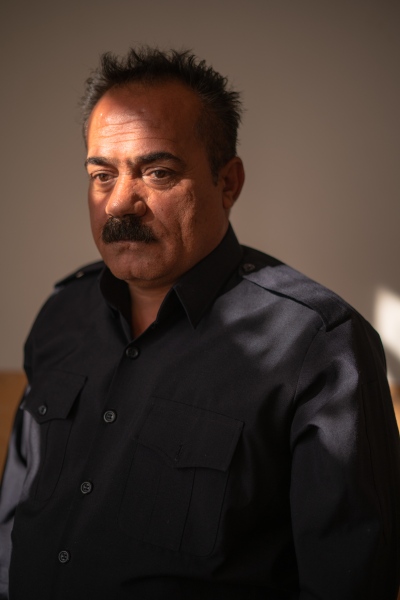
Muhammad Ahmad Hamadamin, born in 1975, now still lives in his home city of Ranya. Muhammad joined Kurdistan's Patriotic Union, through which he participated in the civil war within Iraqi-controlled Kurdistan. He was tasked as commander for the Peshmerga forces, but ultimately the campaign was unsuccessful. He was then arrested in Masef on 5/13/1995 by the Kurdistan Democratic Party and was relocated to one of Akre's prisons. Muhammad was freed after spending one year as a political prisoner.
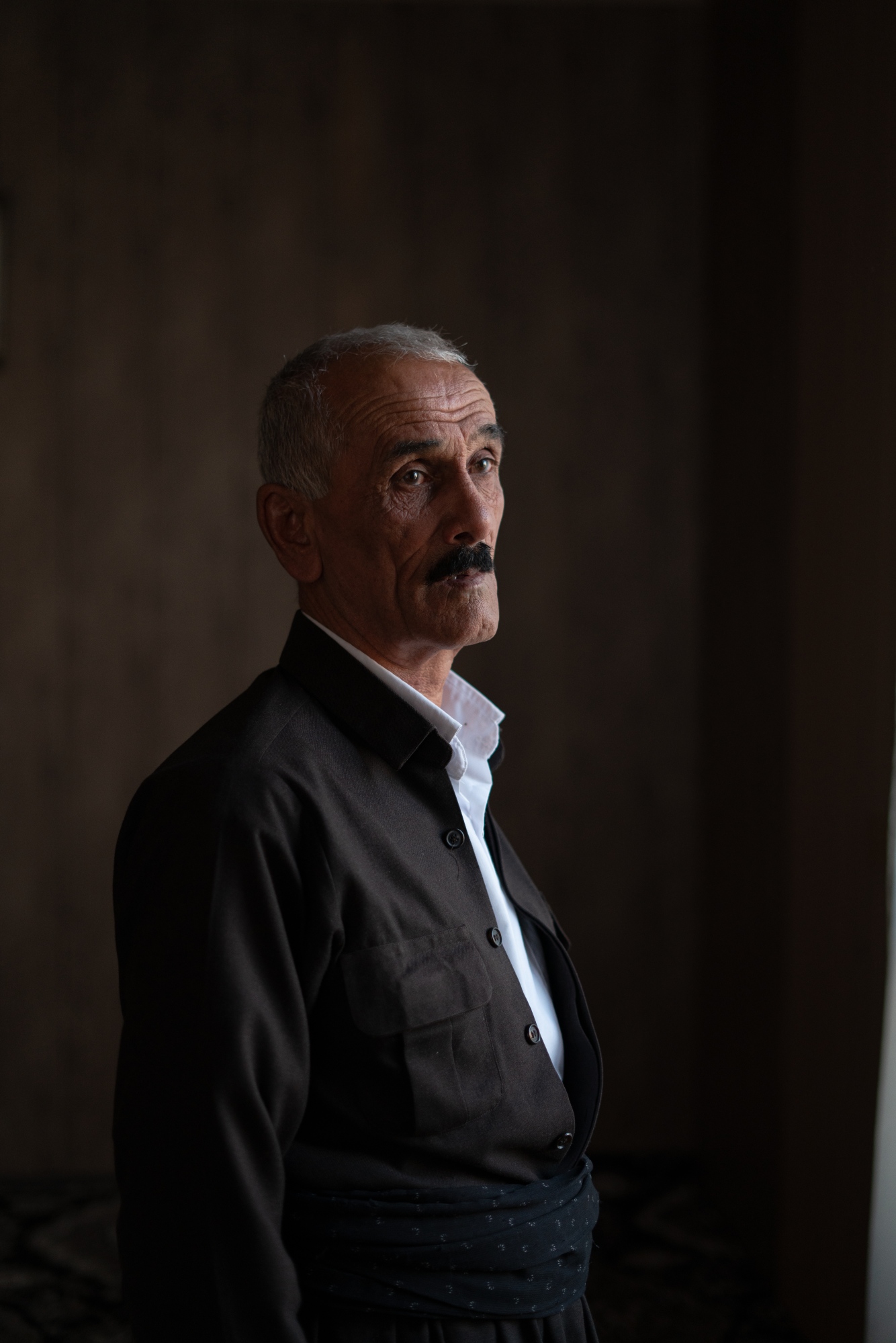
Muhammad was born in 1954 in Merdera. Having formed had a connection with the Kurdish revolutionaries known as the "Peshmerga," he engaged in acts of espionage against Saddam Hussein's regime within Iraq. On the other side of the border, he would regularly visit his fellow revolutionaries who were at that time consistently in active combat and thus had to live in the region's mountains.
One fateful day the Iraqi armed forces broke into his house, and he had no chance for escape. He was arrested and imprisoned in Kirkuk, as were his brothers,.